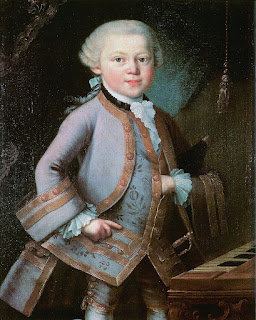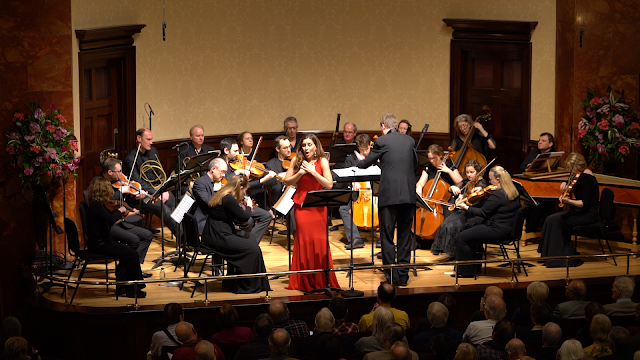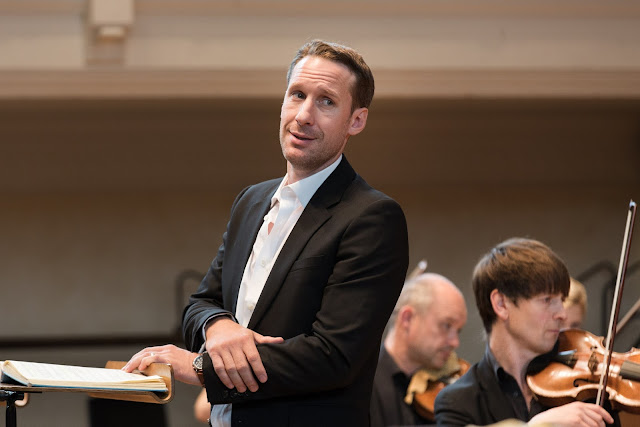 |
| Mozart in January 1770 (School of Verona, attributed to Giambettino Cignaroli ) |
Reviewed by Robert Hugill on 9 January 2020 Star rating: (★★★★)
A fascinating look at 14-year-old Mozart in Italy and the music that was around at the time
So, we have reached 1770 in Ian Page and The Mozartists ambitious Mozart 250 project which tracks Mozart's progress year by year. 1770 means that we have reached the first of his major youthful operas, the highly impressive Mitridate, Re di Ponto, premiered in Milan, but there was much else happening that year also.
For 1770 - a retrospective at Wigmore Hall on 9 January 2020, Ian Page and The Mozartists were joined by soprano Samantha Clarke and mezzo-soprano Ida Ränzlöv for a programme of music from 1770 with symphonies by Vanhal and JC Bach, plus arias and duets from Gluck's Paride ed Elena, Haydn's Lo speziale and Le pescatrici, JC Bach's Gioas, re di Giuda, Jommelli's Demofoonte and Mozart's Mitridate, Re di Ponto. Music that was premiered in Vienna, London, Esterhaza, Naples and Milan.
We started with the Symphony in E minor by the Vienna-based Bohemian composers Johann Baptist Vanhal, one of around 100 symphonies that he seems to have written. His Symphony in E minor was part of a group published by Breitkopf in 1770. It is a compact, four-movement work. The opening Allegro moderato was elegant with some vigour, followed by a graceful Andante for strings only. The minuet was robust with a trio for wind only. As with other music of this period, I found that there was a sense of slightly too many repeats for the good of the music, and the work only really took off in the finale, which was full of crisp energy and vivid contrasts.
Gluck's Paride ed Elena (Paris and Helen) is the third of his so-called Reform operas written with librettist Ranieri de'Calzabigi. Premiered at the Burgtheater, Vienna in 1770, the opera is full of good things but the story of Paris' wooing and winning of Helen of Troy lacks the element of tragic drama which make Orfeo ed Eurydice and Alceste so intense.























.jpg)

.jpeg)





.jpeg)